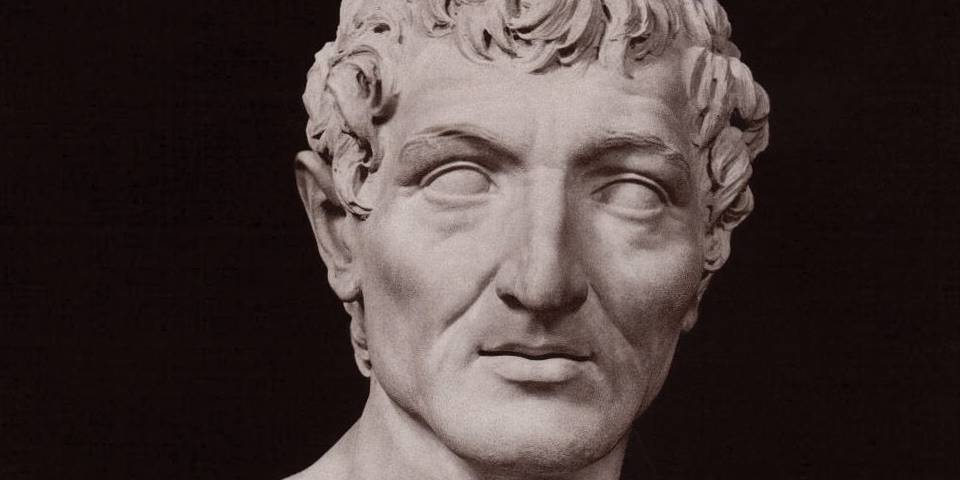

25020 views

Marcus Cocceius Nerva was a Roman emperor from 96 to 98 AD. His reign brought stability to the ancient Roman Empire compared to his predecessors. Moreover, the emperor helped establish the foundations for a new golden era for Rome.
He had at least one attested sister, Cocceia, who married Lucius Slavius Titanus Otho, the brother of the emperor Otho. Moreover, he was a member of the Italian nobility. All direct ancestors of Nerva were associated with imperial circles from the time of the first Emperor Augustus. In addition, the great-grandfather of the emperor was Consul and Governor of Asia in 36 BC.
Contents
ToggleNerva was born in the village of Narni, located nearby Rome. He was the son of Marcus Cocceius Nerva, Suffect Consul during the rule of Caligula, and Sergia Plautilla. He had at least one attested sister, Cocceia, and belonged to the Italian nobility. The Cocceii were among the most popular political families of the late Republic and early Empire. Moreover, representatives of this family got consulships in each successive generation.
There are not that many records left about Nerva’s life. He wasn’t pursuing the usual administrative or military career. First, he served as praetor-elect in 65 AD and was a talented diplomat and strategist. Importantly, Nerva was an advisor to Emperor Nero and helped to detect and expose the Pisonian conspiracy of 65 AD. His services must have been important since he earned many rewards ad received triumphal honors, usually reserved for military victories, and gave him the right to have his statues placed throughout the palace.
Interestingly, Nerva was a friend of emperor Vespasian and most probably watched over his youngest son Domitian when Vespasian departed for the Jewish war in 67 AD.
The suicide of Nero in 68 AD brought the Julio-Claudian dynasty to an end. It led to the Year of the Four Emperors, where the rise and fall of the emperors Galba, Otho, and Vitellus happened until the Vespasian’s reign starting on 21 December in 69 AD. There is not much information about the doings of Nerva during 69 AD, but even though Otho was his brother-in-law, he appears to have been one of the strongest supporters of the Flavian dynasty.
Nerva was rewarded with a consulship early in Vespasian’s leadership in 71 AD
Thus, he became one of the few non-Flavians honored under Vespasian. After 71 AD, Nerva disappeared from the historical record again, but he probably continued his career as an inconspicuous advisor under Vespasian and his sons Titus and Domitian. In 89 AD, the revolt of Saturninus happened where the governor of Germania Superior, Lucius Antonius Saturnius, and his two legions at Mainz, Legio XIV Gemina and Legio XXI Rapax, revolted against the Roman Empire. This rebellion was crushed in 24 days, with all leaders at Mainz punished.
The following year was notable for the new revolt by Domitian, where Nerva got the consulship. Finally, however, the rebellion had been suppressed, and the Empire could come back to order.
Emperor Domitian was assassinated in a palace conspiracy organized by court officials in 96 AD. On the same day, Nerva was proclaimed a new Emperor by the Senate. The choice was unusual. Nerva did not have children and spent much of his career out of the public vision. Moreover, it is still not clear if Nerva was somehow connected to the assassination of emperor Domitian. Both modern and ancient authors assume that he was involved since the conspirators approached Nerva as a potential successor before the assassination. Thus, he knew about the situation in advance. However, following the historical facts, Nerva has proclaimed Emperor only on the initiative of the Senate right after the assassination.
When Nerva became an Emperor, he did not have children, was old and had a weak health, but for these reasons making him a ruler was considered a safe choice
Also, Nerva had tight relationships with the Flavian dynasty and was respected by the Senate representatives. The emperor avoided civil conflicts, and thus, by choosing him, the Senate expected to avert civil war again. After the death of Domitian, all his coins and statues were melted, and arches were torn down. Moreover, his name was erased from all public records. All existing portraits of Domitian were carved to make the likeness of Nerva. The palace erected by Domitian on the Palatine Hill, the Flavian Palace, was renamed the “House of the People” while Nerva was living in Vespasian’s former villa in the Gardens of Sallust.
The change of government was a positive sign for the senators, who had been persecuted during Domitian’s rule. Nerva publicly swore that no senators would be put to death again at the beginning of their reign. In addition, he finished trials based on treason and released imprisoners under these charges. Moreover, the new emperor promised amnesty to those who had been exiled.
All properties once confisticated by Domitian were returned to its owners
Nerva relied so much on friends and advisors whom he trusted. Since the emperor was chosen on the initiative of the Senate, he had to gain support among the Roman citizens, so a “congiarium” of 75 denarii per person was gifted to the populace, and the soldiers of the Praetorian guard received a donation of about 5000 denarii per person. So the economic reform was made, where the neediest Roman families became free of taxation. In addition, Nerva exempted parents and their children from a 5% inheritance tax so that many taxes were remitted, and Roman provinces received new privileges.
Nerva abolished abuses of the “Fiscus Iudacius,” the additional tax for Jews during the time of the Roman Empire
However, since Nerva reigned only for 15 months, his public works were few. The emperor repaired the Roman road system and made the expansion of the aqueducts. Several constructions created under him were a granary, known as the “Horrea Nervae,” and an Imperial Forum, which Domitian began.
Nerva’s expenses influenced the economy of Rome, and instead of religious sacrifices, games, and horse races, he created a new way of income, which was generated from Domitian’s former possessions. Among them were the auctioning of ships, estates, and other belongings. Also, sufficient amounts of money were gathered from Domitian’s silver and gold statues.
Despite the fact that Nerva made a lot of efforts to stay popular with the Senate and the Roman populace, there was strong support for Domitian in the army. The Praetorians considered the measures of Nerva insufficient and demanded the execution of Domitian’s assassins, which the emperor refused. This misunderstanding led to the gravest crisis of Nerva’s reign. Nerva stopped the treason trials but allowed the prosecution of informers by the Senate, which led to chaos. Everyone started to act in his own interests against personal enemies. The situation seemed even more difficult since there was no direct successor, and Nerva was old and weak.
Since Nerva did not have children, he realized that his only option was adoption. He chose his son Marcus Ulpius Traianus, known as Trajan, who was the governor of Upper Germany. The adoption took place at a public ceremony in 97 AD. Nerva lacked any military experience and didn’t know much about foreign affairs, so the choice of Trajan was made with the aim of providing an heir and securing the northern provinces.
At the start of the fourth consulship in 98 AD, Nerva suffered a stroke during a private audience. Shortly after it happened, he got a fever and died in his villa in the Gardens of Sallust on January 28. His ashes were laid in the Mausoleum of Augustus. Nerva was succeeded by his adopted son Trajan, who was welcomed by the Roman citizens more positively.
Author: Kate Zusmann
This website uses cookies. For more info read the cookies policy
Rome.us © 2026. Created with love by Roman experts and guides.